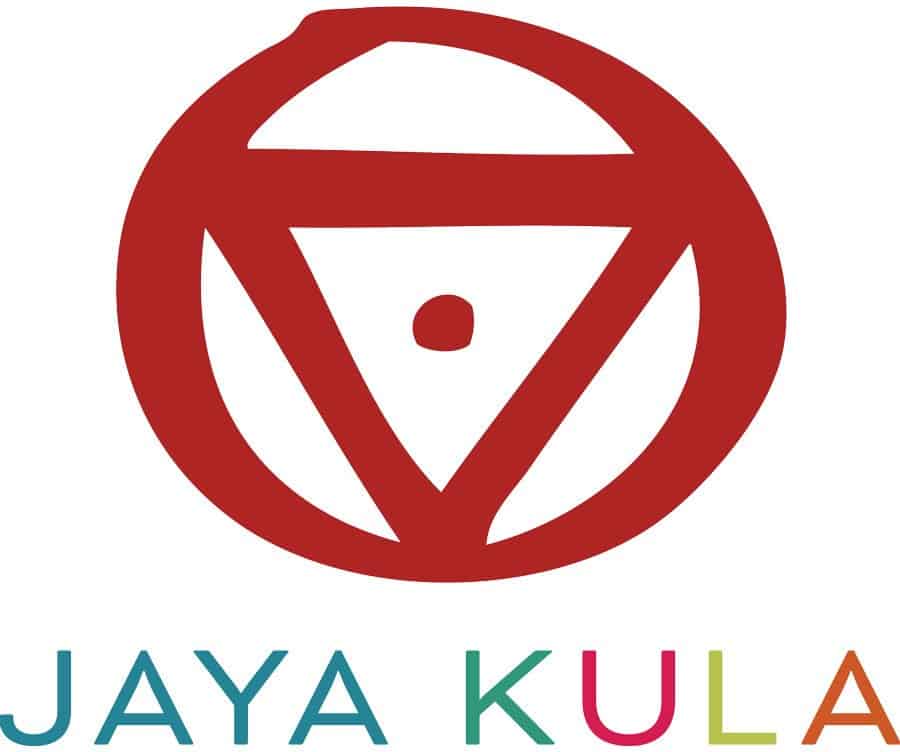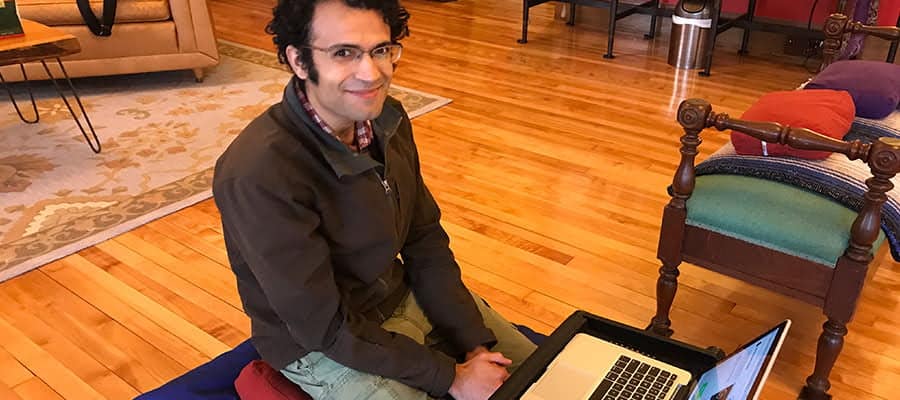God • Titan • Human • Animal • Hungry ghost • Hell
These are the names of the six realms, or lokas in Sanskrit. The realms represent the six styles in which human beings lose touch with their real nature and experience suffering, aka, karma.
When we do sadhana, we begin to step out of the realms. Our clarity, spontaneity and freedom of expression increase.
Last time, I wrote about titan Realm. About every two weeks, I will be describing a new realm and will offer a few pointers about working with each flavor of karmic fixation.
Human Realm
Human realm and titan realm both express as competitiveness and envy. While titan realm karma expresses as the compulsive seeking of public acclaim for what one does, human realm expresses as seeking approval for what one knows and drives one to compete for intellectual superiority.
Human realm is the “mind realm.” This is the classic stuck in your head thing. You are attached to thinking, planning, theorizing, categorizing, comparing, calendaring, explaining, arguing and nit-picking. You bolster ego by criticizing the ideas, positions or beliefs of others and, importantly, by convincing yourself and others that you are right.
Human realm fixation covers up a fear of openness and of not knowing. It is a strategy that wants to quell anxiety about the vastness and unpredictability of life’s natural intelligence by containing that vastness with rationalistic, limited ideas. In a sense, human realm fixation tries to squash doubt about the small self by competing with vidya shakti, or the native intelligence of God.
The great obstacle of the human realm is being unable to step out of intellectual, conceptual thinking and allow oneself to become immersed in the vastness and openness of experience.
Contemporary Westerners are so highly trained to rely on their minds, the majority of people honestly cannot discern the difference between knowing about something in an intellectual way and embodied knowledge.
I sometimes am asked by yoga studios to teach practices from Kashmir Shaivism in teacher training courses. I generally have to let people know that what I teach is student training, not teacher training. How can something be teacher training when people are learning it for the first time?
For instance, if I share a bit about chakras or mantra or meditation and give students some sadhana to do, they are far from ready to teach. They are only ready to practice!
Mind realm fixation mistakes mentally understanding an idea or a technique for real knowing. The knowledge that yoga in the largest sense offers us is embodied knowledge of the nature of Reality. We learn how to work with Reality, and we become directly immersed in its wisdom. We are not just thinking about things, or describing them, or following a technique in a superficial way.
Gaining embodied knowledge requires that we let go of concepts and preconceptions. We have to listen deeply and openly with all of our senses. We must use our minds as organs of curiosity, not as capture and subdue weapons. We have to surrender and let Reality communicate to us. We have to become honest apprentices, not instant, pour-and-mix masters. And we must practice, practice, practice until we know the way from first-hand experience.
Imagine that you are travelling by train to Dehradun. On your journey you will pass through large stations, through towns and villages. Every one of these has been indicated in the guide-book. But what is seen between the different stations, can it all be described in full detail? The trees and plants, the animals and birds, the tiny little ants that are met with on the way, could all these be delineated? ~Anandamayi Ma
Exit from the Human Realm
- Human realm is the future thinking realm par excellence. Future thinking is a doomed attempt to control time and the unknown. It is helpful in this situation to cultivate “ordinary presence.” To do this, spend some time each day internally and neutrally narrating your activities. For instance, if you are washing the dishes, internally say to yourself: “I am picking up a plate. I am rinsing it with water. I am picking up the dish soap. I am squeezing the dish soap on the sponge. I am washing the plate. I am putting the plate in the drainer.” Whatever you are doing, narrate your activities to yourself in this simple, neutral way.
- Practice continuous OM chanting. This is a gateway to getting out of your head and into more direct, sensory experience. Chant OM aloud on the exhale and silently chant it on the inhale. Make sure that the “mmmm” sound is about twice as long as the “oo” sound. It is very nice to do this in groups with everyone going at their own pace.
- Singing kirtan at your altar or in groups is also a good practice for getting out of your head and into more direct experience.
- Practice any meditation technique that involves listening openly to the sounds in your environment.
- Try to laugh at your own earnestness. Value anyone who teases you about being too serious!
Wisdom Seed
You can’t fear something of which you have no experience. In fact, what we fear or long for most is precisely that about which we have the possibility to develop deep insight. The fear of life’s vastness that characterizes human realm, blossoms with the nourishment of sadhana into a profound confidence in vidya shakti, or the natural wisdom of embodied life.

